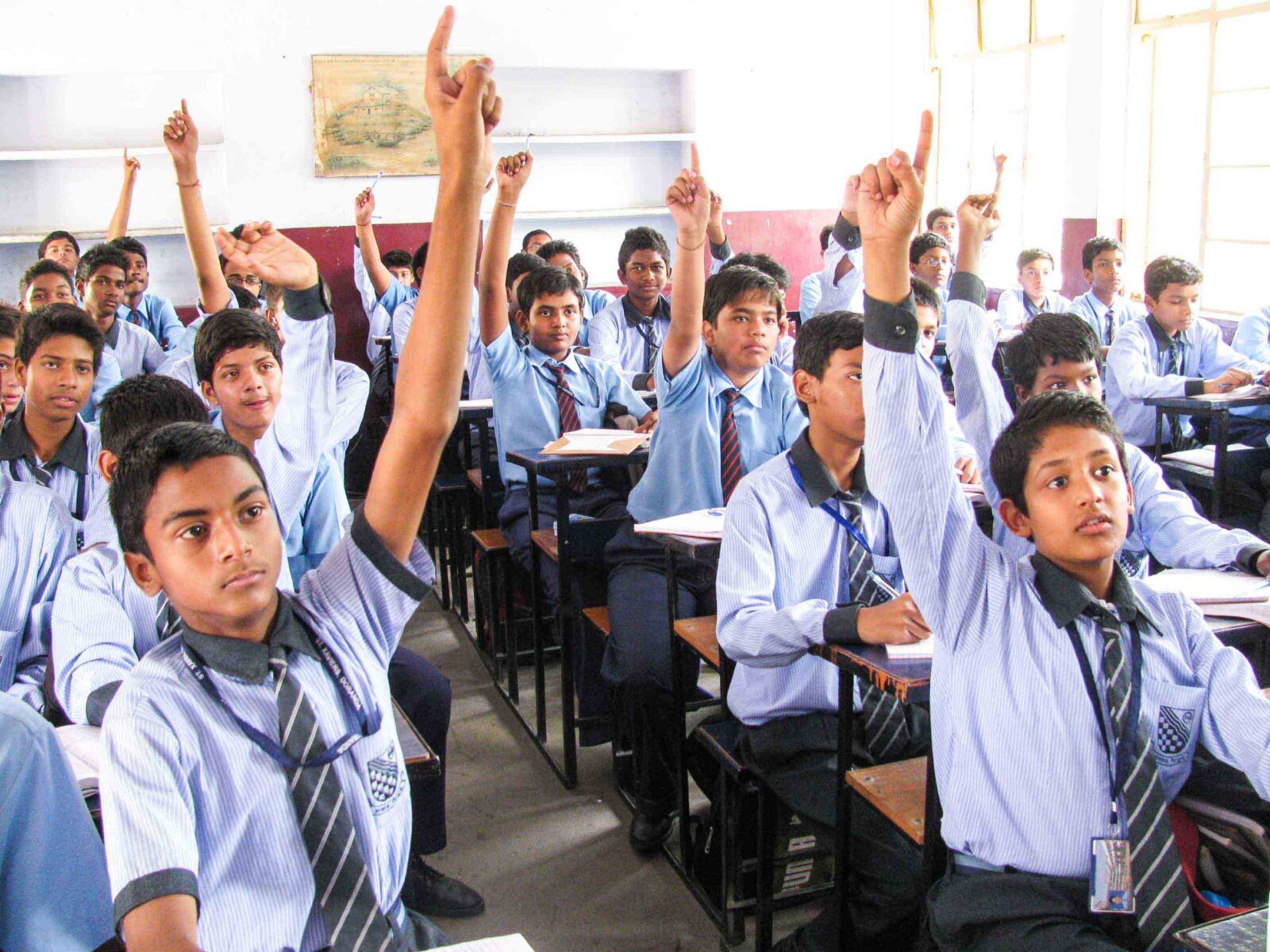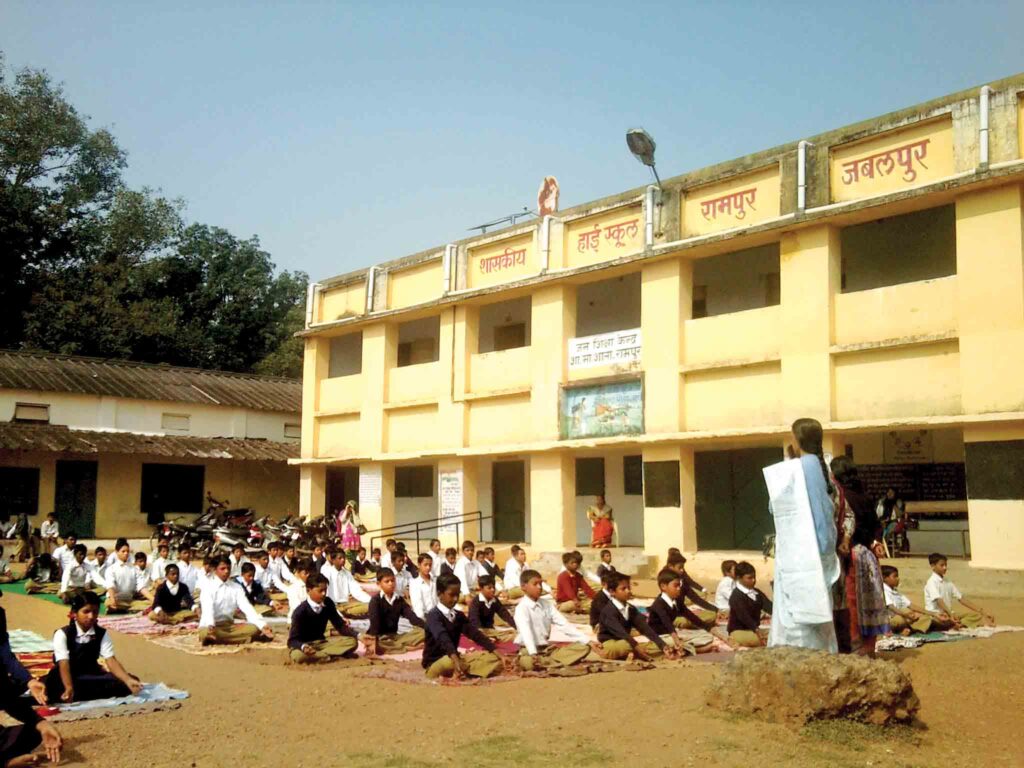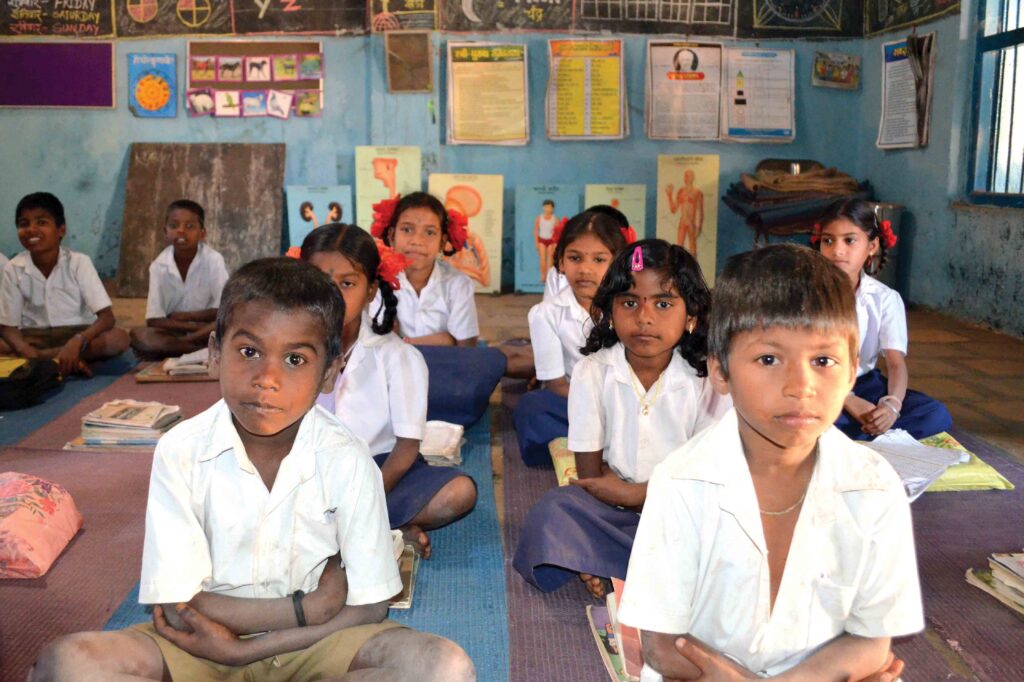- Cover Story
- Governance
- Globe Scan
- Corruption
- State Scan
- Talk Time
- Cover Story
- Governance
- Globe Scan
- Corruption
- State Scan
- Talk Time
Recent Posts
© Copyright 2007 - 2023 Gfiles India. All rights reserved powered by Creative Web INC.GovernanceDo we need a new education policy?
The draft of the new education policy has been placed in public domain. But the real question is whether there is a need for a policy or do we need an action plan?
Anil SwarupJuly 8, 20195 Mins read101 Views
 Written by Anil Swarup
Written by Anil SwarupA group, headed by Dr Kasturirangan, was constituted by Government of India a couple of years ago to prepare a draft of New Education Policy. This Group has submitted a draft that has been placed for comments in public domain. When the NDA had come to power in 2014, a Committee, headed by Late Mr TSR Subramanian, had been constituted earlier to work on a policy. This Committee too had submitted its report but has not seen the light of the day. So we now have two reports with the government. Only time will tell whether and when we will have a new education policy.
The moot point, however, is whether we require a new Education Policy or, considering the diversity of the country, is there need for a well-defined action plan for each state clearly outlining what needs to be done, how will it be done, who will do it and by when will it be done to provide quality education to every child in the country? Now that the draft has been put in public domain, let us look at the salient aspects and their relevance in the context of improving the quality of education.
One of the welcome recommendations relates to inclusion of pre-school education as it is well-established that the initial years of a child are critical for his overall development in future. But this is nothing new. Such provisions have already been incorporated in ‘Samagra Shiksha’ that was launched a year and half ago. The new scheme sought to amalgamate the ongoing ‘Sarva Shiksha Abhiyan (SSA)’ and ‘Rashtriya Madhyamik Shiksha Abhiyan (RMSA)’, apart from extending eligibility under the scheme to pre-school education and classes 11 and 12 that were hitherto not available for these segments.
The focus on the teacher has been talked about for a while. The teacher is the pivot of school education. The draft reiterates that. Various issues relating to pre-service training, selection of teachers and in-service upgradation of skills have been highlighted in the report. All these aspects are well known. The report should have gone into the reasons for poor pre-service training facilities in the country. There are a large number of virtually non-existent B.Ed and D.El.Ed colleges that are imparting training to the teachers. The issues are known.
The draft does little to address these issues. There is wishful thinking in the draft about recruitment of teachers that is beset with scams but doesn’t suggest any foolproof mechanism to select teachers. Until and unless the teachers are appropriately trained before they get down to teaching and unless there is a transparent recruitment of teachers in government schools, not much is likely to improve in delivering quality education. Some states have indeed done wonderful work in this regard. The Draft Report should have mentioned such examples that could be replicated in other states.
As part of in-service training of teachers, the draft recognises the role that ‘DIKSHA’ (a portal already in place for teachers) can play. DIKSHA has many more features relating to teachers. These should have been discussed in the report as this portal has the potential to resolve a large number of issues relating to teachers.
Students have been empowered to select subjects of their choice. More flexibility has been advocated for this purpose in the curriculum. The emphasis given to vocational training is critical and finds space in the draft. However, none of this is either new or out-of-the-box. CBSE has already proved equivalence to vocational subjects in their examination.
The revision of National Curriculum framework has been pending for a while. It was last formulated in 2005. The draft suggests changes in the framework and rightly lays emphasis on bringing in ethical content in the curriculum.One of the welcome recommendations relates to inclusion of pre-school education as it is well-established that the initial years of a child are critical for his overall development in future. But this is nothing new. Such provisions have already been incorporated in ‘Samagra Shiksha’ that was launched a year and a half ago
The Draft recommends large scale changes in the conduct of examinations by Boards as also introduction of examinations at various levels. The draft does not delve into the practical problems and the cost of conducting the exams in the manner that it has been suggested. A separate regulatory authority for school education has also been suggested. However, whether such changes would help in qualitative improvements in learning outcomes is debatable.

Right at the beginning, the draft mentions about “out-of-the-box” solutions to the problems that the education sector faces. However, there are very few solutions offered. The draft ignores the advantages of experiential learning that can make learning very interesting. Some out-of-the-box approaches should/could have been suggested as there are a number of such examples in the country that can be replicated.
A number of NGOs are doing phenomenal work. There is just marginal mention of the role of Non-Governmental Organisations that are playing a tremendous role in transforming school education. The need for scaling public-private partnership is missing from the report.

The number of students migrating to private schools is increasing by the day. The draft does not delve into the details of why is this happening and should it happen? Instead of pushing private schools not to use the term “public”, effort should have been made to get to the bottom of the problem. Is the growth of private schools necessarily a problem? They could have possibly come to a different conclusion. Private schools are playing an important role in imparting school education and will continue to do so. There are indeed a few unresolved issues relating to private schools and they need to be addressed. However, to do so, we have to get over the “bias” that we have against them. There should have been an out-of-the-box thinking in this regard.

The draft has placed a lot of faith in the Right to Education Act and recommends its extension to all the remaining classes in the school. This legislation seems to have done more damage to school education
The draft has placed a lot of faith in the Right to Education Act and recommends its extension to all the remaining classes in the school. This legislation seems to have done more damage to school education. Assessments have revealed that the learning outcomes since the enactment of the law have actually shown a negative trend.
The “language” issue has already created a huge controversy. Why was this issue considered at all in the first place in the draft? Can a “formula” be imposed on states? Should such a “formula” be imposed? These aspects should have been looked into before making a recommendation.
And, finally, the draft does not provide for a definitive and time-bound action plan. It accepts the fact that “the challenge is the ability to implement the policy” but does precious little to address this part. There is indeed no dearth of diagnosis and prescription. The problem is of application. The draft neither analyses why such initiatives have failed in the past nor does it come up with specific recommendations on how to make it happen on the ground. The draft policy doesn’t appear to have served any purpose except providing space for debates. The issues that beset education require to be addressed forthwith without waiting for a policy that may take a long time coming. Plans have already been prepared for Uttar Pradesh and J&;K. What is required is to prepare such action plans for each state separately as each state has different sets of issues.
The writer is former Secretary, Department of School Education and Literacy
Recent Posts
Related Articles
GovernanceNewsBackdoor entry of Private players in Railway Production Units ?
Written by K. SUBRAMANIAN To Shri G C Murmu C&AG Dear Shri Murmu,...
ByK. SUBRAMANIANFebruary 22, 2024GovernanceNailing Labour to The Cross
Written by Vivek Mukherji THEY grease the wheels of India’s economy with their...
ByVivek MukherjiMay 5, 2020GovernanceBig Metal Momentum
Written by GS Sood PRECIOUS metals especially gold and silver are likely to...
ByGS SoodMay 5, 2020GovernanceStrengthening Social Enterprise Ecosystem: Need for systemic support from the Government
Written by Jyotsna Sitling and Bibhu Mishra THE world faces several challenges today....
ByJyotsna Sitling and Bibhu MishraMay 5, 2020 - Governance
- Governance




























































